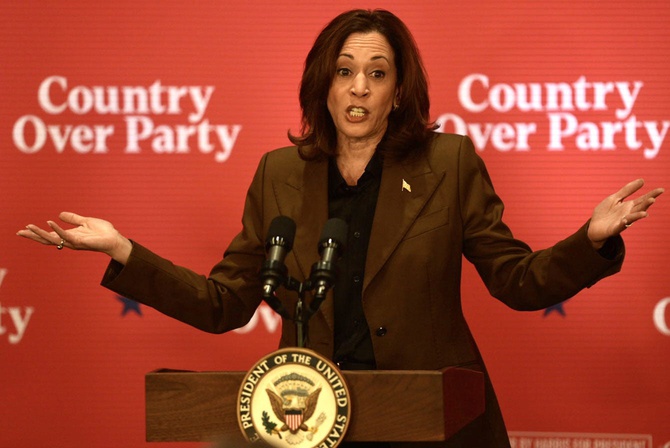In an interview that took a surprising turn, Vice President Kamala Harris set the record straight with Charlamagne Tha God on a swirling internet rumor that Janet Jackson resents her over the prosecution of Michael Jackson. Harris dismissed the claim with a laugh, saying, “That’s just not true on either count,” adding that she hadn’t spoken with Janet Jackson but assured, “it’s certainly not true about her brother.”
The rumor began circulating after Jackson questioned Harris’s racial identity during a recent interview, stating, “She’s not Black…her father’s white,” which quickly fueled social media speculation. Harris, who identifies as Black, was born to Jamaican father Donald Harris, a prominent economics professor, and Indian mother Shyamala Gopalan, a respected cancer researcher. Throughout her career, Harris has frequently addressed such challenges to her identity, dismissing what she describes as “purposeful misinformation” designed to diminish her work and identity. During the town hall, she addressed this head-on, noting, “One of the biggest challenges I face is mis and disinformation… meant to convince people that they somehow should not believe that the work I have done has meaning.”
Charlamagne’s interview didn’t shy away from other controversies surrounding Harris, including critiques of her record as a prosecutor. When asked about her time as District Attorney of California and the 1,900 marijuana convictions overseen during her tenure, Harris rebutted claims that she was excessively punitive on such cases. “It’s just simply not true,” she told Charlamagne. “I was the most progressive prosecutor in California on marijuana cases,” she argued, despite previous records showing that her conviction rate on marijuana offenses was higher than her predecessor’s. Harris attributed ongoing critiques of her record to “purposeful” misinformation tactics aimed at undermining her efforts.
The Vice President also addressed criticisms regarding the administration’s handling of immigration, pushing back against accusations of mismanagement at the U.S. border. She pointed to a comprehensive immigration reform bill that her office dropped early on, attributing ongoing challenges to congressional gridlock. “First thing we dropped was a bill to fix the broken immigration system,” she said, defending the administration’s approach and emphasizing that Congress has blocked essential reforms.
In addition to defending her record, Harris also reiterated her stance on reparations, a hot-button topic among Black voters. She called for a thorough investigation into reparations for descendants of slavery, saying, “It has to be studied; there’s no question about that. And I’ve been very clear about that position.”
The interview, marked by both serious issues and moments of levity, saw Harris using humor and directness to clarify her positions. By addressing both policy and personal identity, she aimed to reset the narrative on issues that have frequently trailed her, particularly as she campaigns on the national stage.












